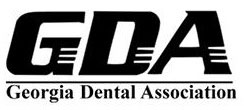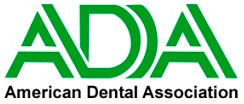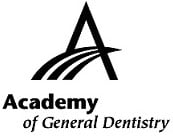Few people cherish the thought of a dentist visit, but, for some people, it can be downright scary. As dentists, we’ve seen it all, from slight nerves to panic-attack levels of fear – what may even be diagnosed as a phobia.
That is why we offer sedation dentistry. These perfectly safe and now common techniques help smooth the dental experience for any anxious patient – whether they’re simply uneasy or experiencing the most debilitating effects of dental anxiety.
What is Sedation Dentistry?
This range of techniques allows our caring professionals to make you utterly comfortable while allowing us to perform all levels of dental procedures. During sedation dentistry, you will receive one of three treatments – depending upon your situation – that will relieve any stresses you feel and allow us to do our job of keeping your mouth and teeth as healthy as possible.
Our team is trained and knowledgeable in administering three types of sedation dentistry, which include:
- Oral sedation
- I.V. Sedation
- Nitrous Oxide (commonly referred to as “laughing gas” or “happy gas”)
Sedation dentistry is also available to patients of all ages.
Who Needs Sedation Dentistry?
If you experience any elevated level of stress at the mere thought of a trip to the dentist – such as breaking out in a cold sweat or getting queasy – then perhaps sedation dentistry is the solution. And if these fears ever keep you from seeing your dentist twice a year, as is the base recommendation by the American Dental Association, then you should inquire about sedation techniques.
But anxiety is not the only reason to seek sedation dentistry. For example, some patients have a decreased sensitivity to local anesthesia (such as Novocain). In these cases, sedation dentistry will allow you to undergo procedures without pain or concern.
Other reasons to utilize sedation dentistry include:
- An overly sensitive gag reflex
- A fear of needles (aichmophobia)
- Extreme teeth sensitivity
- Feelings of claustrophobia while in the dental chair
- Difficulty controlling movements
- Special needs (including physical, cognitive or behavioral)
What Types of Sedation are Used in Dentistry?
As we mentioned earlier, there are three main types of sedation dentistry, and each anesthetic agent has its advantages and targeted uses. There is both unconscious sedation and conscious sedation dentistry. You’ve likely heard plenty about one option: Nitrous oxide (laughing gas), which offers a simple and effective method of reducing dental anxiety.
When you talk with us about your oral health situation, as well as your mental health regarding the dentist, we will be able to determine which level to utilize.
Let’s take a closer look at each sedation technique — some of which can even be used in concert. For instance, many dental professionals start a patient with nitrous oxide before then utilizing iv sedation.
Oral Sedation
In this method of sedation dentistry, you simply ingest a small pill prior to your dental appointment. This pill will calm your nerves and help you relax during your appointment. The effects of the pill wear off a few hours later with little to no side effects.
However, because this type of anesthetic effect includes drowsiness, you will need someone to drive you to and from your appointment.
I.V. Sedation
This form of sedation, also known as general anesthesia, is administered intravenously and is fully customizable to the patient and length of the procedure. The use of intravenous sedatives means that you will have little to no memory of your dental visit.
While you will be in a state of unconscious sedation during iv sedation dentistry, you will still be able to respond to verbal commands or to light touch. General anesthesia is the most comprehensive form of sedation dentistry and may require a few hours to fully recover from, however, you can expect an easy and full recovery each time.
We generally use general anesthesia in performing the most invasive procedures, such as root canals and dental implants, but it can be tailored to meet various needs.
Because of the level of sedation achieved with intravenous sedatives, our dentists take the greatest care with their use and require a full knowledge of your health history beforehand. We will also closely monitor your vital signs during any general anesthesia usage and ensure that you are breathing properly and receiving sufficient oxygen intake.
Nitrous Oxide
Nitrous oxide, which is scientifically referred to as dinitrogen monoxide, is an odorless, colorless gas that you inhale through a small mask during your appointment. From the first inhalation of nitrous oxide, you will notice that nitrous oxide, which may also be referred to as “nitro,” has a calming effect. In fact, this inhalational anesthetic can calm even the most severe nerves.
Because the patient stays completely conscious throughout nitrous oxide use, nitrous oxide inhalation is the optimal choice for a whole range of procedures, including routine cleanings. Yet, nitrous oxide can also be used for much more in-depth procedures, such as root canals.
The best part of nitrous oxide use, however, is that nitrous oxide is flushed out of your system in just a matter of minutes once the laughing gas is turned off. In fact, you can return to work or school immediately.
Just because it’s simple does not mean we use nitrous oxide frivolously. In fact, our dentists take the greatest care in their nitrous oxide administration. For instance, we are fully aware of diffusion hypoxia, which can result from a poor transition between nitrous oxide and untreated air. Therefore, we will ensure that you breathe 100% oxygen in the moments following the cessation of nitrous oxide.
Procedure Details
Depending upon the type of sedation dentistry that you and your dentist choose, you will have a slightly different pre-, during-, and post-procedural experience. But we will ensure that you are completely prepared and ready for each anesthetic agent and that the entire experience is as easy and stress-free on you as possible.
Pre
If your procedure only includes nitrous oxide gas, you will require zero preparation.
If you are using oral sedation medications, you will require a prescription from your dentist that you will pick up from your pharmacy. You will take this pill at a designated time. Note that you may need to fast for several hours before taking the anesthetic. Also, remember that you will need someone with you to help you get you home from the procedure, so secure that driver as soon as possible.
If you are using iv sedation, you will have certain criteria that all general anesthesia patients must undergo. Your dentist will provide a list of these stipulations, which may include, no eating or drinking after midnight on the day before the procedure. Follow these instructions to the letter. Also, remember that you will need someone with you to help you get you home from the procedure, so secure that driver as soon as possible.
During
When you receive nitrous oxide, you will understand why it’s sometimes referred to as laughing gas, as it imparts a carefree sensation. However, you will still have to listen to and follow your dentist’s instructions.
If you are on oral medication, expect to be slightly drowsy. You may even fall asleep. Don’t worry, the anesthetic effects will not put you into a deep sleep. And the dentist will be able to easily wake you and have you follow instructions.
For iv sedation, you can expect to be unconscious for the entirety of the procedure and to not feel or notice any part of it.
Post
For those who receive nitrous oxide, you will stop feeling the effects of the gas within 15-30 minutes of it being turned off. And because we follow strict guidelines, you should have no fears regarding our use of nitrous oxide. Therefore, you will be able to drive yourself away from our offices.
Following a procedure that includes either oral medications or general anesthesia, we will monitor you until we judge you safe to return home, at which time we will talk with your designated representative to inform them what happened during the procedure. We will talk with you too, but you may have trouble remembering everything, which is why we will put everything down in writing and follow up with you if necessary. We will then release you into the care of your driver.
While your procedure will be pain-free during the procedure, there may be residual pain following the procedure – for which we will prescribe pain-alleviating medications.
What is the Recovery Time?
Your recovery time depends on several factors, including your weight, age, sex, overall health, and type of sedation, amongst other factors.
As discussed, there is a very short recovery time for nitrous oxide – nitrous oxide effects are typically gone within 15-30 minutes of cessation of inhalation.
If you use oral sedation or iv sedation, you can expect a 24-hour recovery period – during which you will largely feel fine. However, you may remain a little sleepy and slow to react, and thus unable to operate a car or heavy machinery.
What are the Advantages of Sedation Dentistry?
There are numerous reasons why some of our patients choose sedation dentistry. They include:
- Relief of anxiety – Our range of anesthetic agents mean you should never suffer from dental anxiety.
- Reduction of gag reflex – Some people have a very easily tripped gag reflex, which can make dentistry tough. The anesthetic can reduce or completely halt that reflex.
- Pain relief – Pain is produced when the brain receives distress signals from other parts of the body – including your mouth. When you’re under the influence of sedatives and anesthetics, the brain cannot receive these signals. Therefore, the actual procedure is guaranteed pain-free – though you may require post-procedure painkillers.
- Faster procedure – Since you, the patient, will either be anxiety free and feel zero pain, the dentist will be able to work quickly and get the job done as fast as possible.
How Safe is Sedation Dentistry?
If it is performed by knowledgeable, caring professionals, sedation dentistry is an extremely safe option. At Parrish-Childs, we help guarantee its safety by closely studying your health history, ensuring that there are no surprises or possible anesthetic effects that could cause complications. If we see any indications that a specific anesthetic may be a problem, we will tell you immediately.
We work hard to ensure that everyone who requests sedation dentistry gets the perfect solution that meets their physical and mental requirements.
That said, we are happy to talk with you about all aspects of sedation dentistry and encourage you to ask all the questions you want. Above all, we want you to be comfortable and get the dental treatment you deserve.
Note that, if you are pregnant, sedation dentistry may not be recommended. This is because some sedatives can affect fetal development. However, nitrous oxide exposure is an option in some instances of pregnancy.
Can Any Dentist Perform Sedation?
All dentists can administer nitrous oxide, and most dentists can prescribe oral sedation medications for adults. However, only a few dentists can prescribe oral sedation to children. We work to provide a full range of options to all patients, including on the child sedation dentistry side.
An even smaller number of dentists have the qualifications to use deep sedation or general anesthesia dentistry. To do so, dentists must pass a Commission on Dental Accreditation (CODA) program.
Our experienced and attentive dentists are qualified to perform all ranges of sedation dentistry and make it their mission to make you as comfortable as possible.
Interested in Learning More?
Contact us today to learn which type of sedation dentistry is best for you. Our caring professionals have been using sedation dentistry for years and are adept at making you feel at ease while providing the absolute best in dental care. We also offer financing options to qualified patients. Call us now at 770-536-0581 to learn more about how Parrish-Childs’ sedation dentistry might be the perfect solution to your dental needs.




